Guided Reading Activity Contemporary Global Issues Answer Key
It's a big week for Mother Earth's (and our) future. Today marks the first Day of the Global Climate Strike. On Tuesday, the United Nations gathered in New York City to kick off the 74th session of the UN General Assembly (UNGA 74). It's a big deal. Each year, all 193 member countries meet as members of the General Assembly in New York City to discuss, debate, and make decisions regarding international development, peace and security, law, and sustainability goals. In addition, the UN has added another item to the docket: from September 21 to 27, there will be a special UN high-level meeting called Action for People and Planet, covering topics such as climate action, universal health coverage, and sustainable development.
This year, the UN is devoted to "address the global challenges of poverty, inequality, climate, environmental degradation, prosperity, and peace and justice," which is a call to action not only for governments to start thinking about these issues and their solutions, but for all of us.
But where to begin? Issues of this magnitude are complex to understand and even harder to solve, so we asked leaders at B-Corps, nonprofits, and charitable brands to give us their top books that informed and inspired their work. Here are their picks.
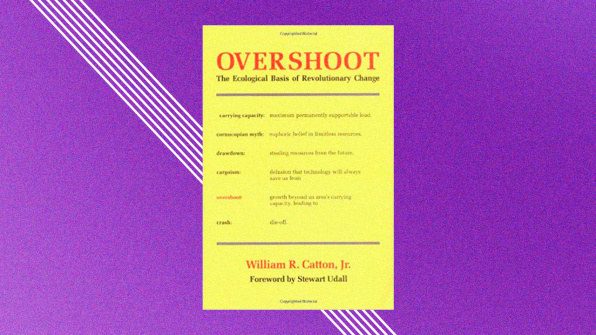
Overshoot: the Ecological Basis of Revolutionary Change by William Catton
"Though William Catton wrote 'Overshoot' almost 40 years ago, it remains the most insightful work I know about the cliff we are steering this planet toward. In it he writes, 'We must learn to relate personally to what may be called the ecological facts of life. We must see that those facts are affecting our lives far more importantly and permanently than the events that make the headlines.' Leaders of today's youth movement say that my generation will die of old age while theirs will die of the climate crisis. It's time for us to share that burden."—Kristine Tompkins, President of Tompkins Conservation and UN Patron of Protected Areas
Tompkins Conservation, founded by Doug and Kristine Tompkins (business leaders from iconic American clothing brands including The North Face, Esprit, and Patagonia), made the largest private land donation in history and is responsible for the protection of more than one million acres of public land.
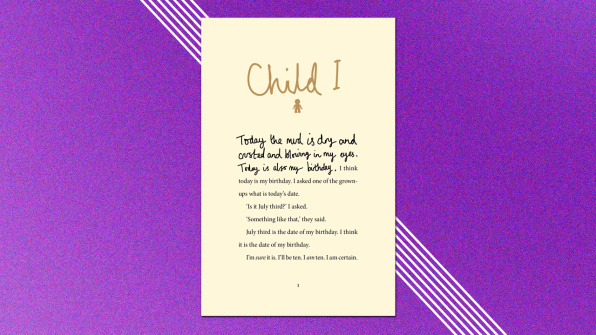
Child I by Steven Tarsane
"Written through the eyes of a orphaned refugee child who has lost his 'Life Book' (ID documents), 'Child I ' poignantly and powerfully tells the story of four children living in a refugee camp—and the hope and community that remains. It's a quick, harrowing read that is purposefully accessible to nearly all ages. In an era when refugees are unconscionably demonized and their problems too often overlooked, this is a book that every leader—and every young adult—should read."—Dave Spandorfer, Founder and CEO of Janji
Janji is a running apparel company that works with partner organizations based in the countries that their apparel collections are inspired by. A part of the proceeds from each sale goes toward a direct donation to bring safe water to those in need.
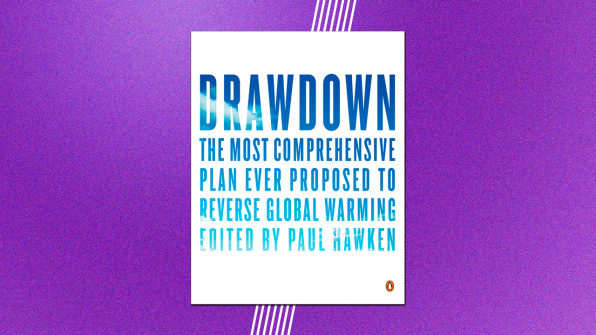
Drawdown: The Most Comprehensive Plan Ever Proposed to Reverse Global Warming by Paul Hawken
"The book I keep going back to—literally, I keep it on my bedside table—is called 'Drawdown: The Most Comprehensive Plan Ever Proposed to Reverse Global Warming.' It is a heavily science-based book, which recognizes that in order to keep within the Paris guidelines, we need to not just reduce emissions but also draw down carbon out of the atmosphere. Plus, it examines the 100 best techniques to do that. Not only does the book describe each solution, their potential costs, and how they would work, it also details the carbon impact each provides. Intrepid's new initiative to draw carbon out of the atmosphere, which is a permaculture project based in Tasmania, was actually a result of this analysis."—Darrell Wade, Cofounder and Chair of Intrepid Travel
Intrepid Travel is the world's largest small group adventure travel company and was the first travel outfitter to ban elephant rides during itineraries. The company has been carbon neutral since 2010 and is currently seeking to become "climate positive" in 2020 by supporting sustainable initiatives like the permaculture project and offsetting more carbon than it emits on its tours.
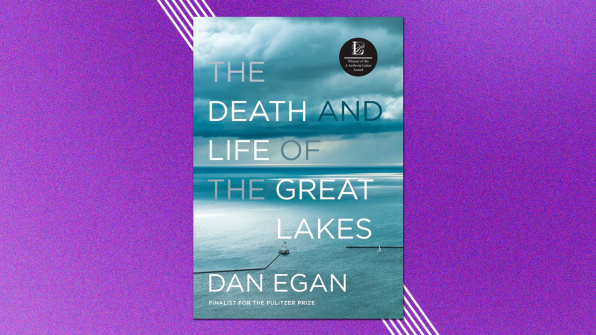
The Death and Life of the Great Lakes by Dan Egan
"As a Michigan native and also a longtime Chicago resident, the Great Lakes have always been magical to me. They conjure thoughts of summer fun, family picnics, and an annual trip to Mackinaw Island. So when my wife was reading 'The Death and Life of the Great Lakes' by Dan Egan, I was immediately intrigued. I've always been aware of some of the problems facing the Great Lakes especially around invasive species, but are the Great Lakes really dying? And, if so, what does that mean given how critical they are to clean water, commerce, and personal enjoyment? While I'm quickly working my way through the book, it's clear Egan is doing a great job representing the issues in terms that are relevant to policymakers, and he offers actionable potential solutions to the problems. While I'm now leading a B-Corp brewery in Colorado, all of these environmental issues are intertwined, and this is a book that can help us all better think through complex issues and consider appropriate alternatives."—Steve Fechheimer, CEO of New Belgium Brewing
New Belgium Brewing, known for beloved craft beers like Fat Tire, publishes annual sustainability reports. The company has boosted efforts to offset carbon emissions by installing solar panels at brewery locations, cofounded the Glass Recycling Coalition to aid in better glass recycling practices nationwide, and uses wastewater from brewing to generate electricity for company buildings.
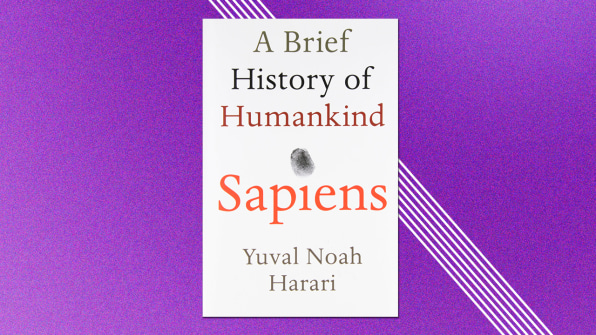
Sapiens: A Brief History of Humankind by Yuval Noah Harari
"This book examines the huge impact that we as human beings have made to our environment. As a species, we have contributed to the extinction of many animals and plants. If we continue to turn a blind eye to environmental issues, we are not only denying ourselves of the truth but also denying future generations of having a better, healthier planet. Unlike ancient humans, who struggled to survive without extensive knowledge of the world, we know the direct impact we are having on the planet and have the ability to change its course, especially with modern technology and innovation. I believe that in today's age, it's our duty to make the necessary changes to ensure human beings are having a positive impact on the world and environment, so that together, we can make way for a better, cleaner planet for future generations to come." —Brad Bao, CEO and Cofounder of Lime
Lime, which is now worth more than $2 billion, operates nationwide fleets of bikes and scooters that are powered with 100 % carbon-free electricity. In 2018, Lime announced a partnership with NativeEnergy, an industry leader in building new renewable energy, to continue furthering its goals to be a carbon-neutral company.
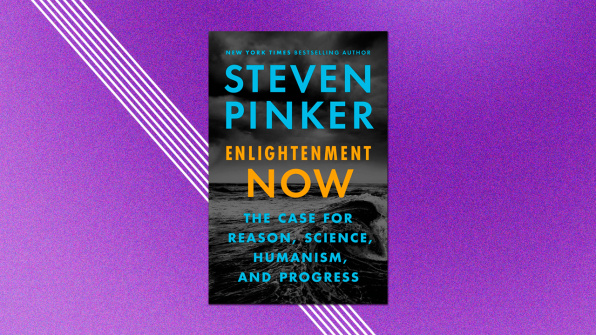
Enlightenment Now: The Case for Reason, Science, Humanism, and Progress by Steven Pinker
"Dr. Pinker elucidates not only the necessity but the logic of optimistic problem-solving. His presentation of data and personalities makes a strong case for the success of projects like the [UN's] Sustainable Development Goals. As a B-Corps leader, I'm surrounded by a family of peers and employees committed to using their everyday lives to promote progress and address problems—that gives me a sense of informed faith in the future"—Annie Agle, Director of Impact at Cotopaxi
Cotopaxi's tagline is "Gear for Good," and each year, the company donates at least 1% of revenue to charitable causes. Additionally, the brand focuses efforts on global poverty alleviation by giving monetary grants to fund health, education, and livelihood initiatives around the world.
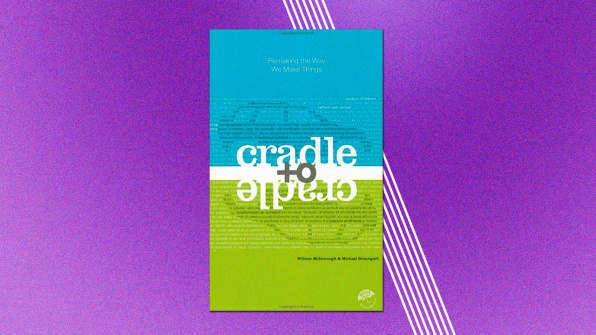
"In 'Cradle to Cradle,' William McDonough and Michael Braungart take cues from nature to show how growth—or, as they refer to it, abundance—can be environmentally additive, rather than wasteful and harmful. The book balances difficult truths with actionable optimism and is a wonderful resource for anyone trying to tackle the issues brought about by our current manufacturing system." —Joey Zwillinger, Cofounder of Allbirds
Allbirds, the sustainable shoe company currently valued at more than $1 billion, uses recycled and biodegradable materials such as merino wool, castor bean oil, and plant fibers to make its products, creating some of the cleanest supply chains in the footwear industry .
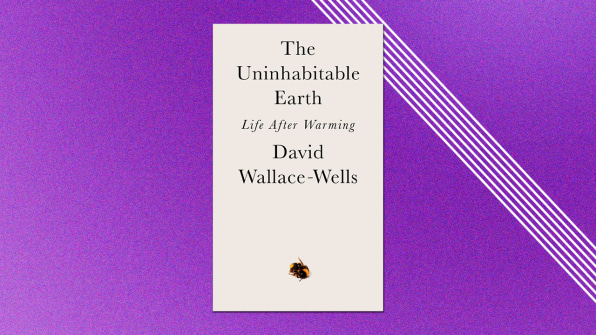
Uninhabitable Earth: Life After Warming by David Wallace-Wells
"It may not be the most cheerful read, but David Wallace-Wells's 'Uninhabitable Earth' really helped me get my mind around the magnitude of the climate problem. Fisher Stevens pointed me toward the book, which paints a brutal, evocative picture of the future we're all facing if we fail to act."—Tim Brown, Cofounder of Allbirds
Fast Company may receive revenue for some links to products on our site.
Guided Reading Activity Contemporary Global Issues Answer Key
Source: https://www.fastcompany.com/90403653/9-books-you-need-to-read-to-save-the-planet-according-to-people-who-already-are
0 Response to "Guided Reading Activity Contemporary Global Issues Answer Key"
Post a Comment